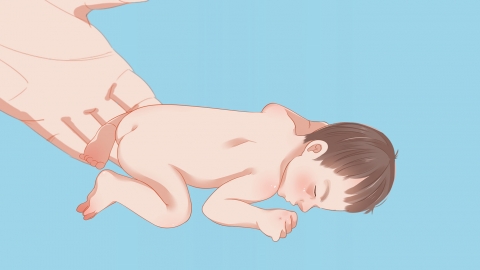What can be done for a toddler over two years old who is experiencing constipation?
Generally, constipation in toddlers around two years old may be related to factors such as diet, bowel habits, insufficient physical activity, functional constipation, and hypothyroidism. It is recommended to seek timely medical consultation and follow the doctor's guidance for treatment, which may include general therapy and medication. Detailed analysis is as follows:

1. Dietary Factors
A lack of fiber or water in the toddler's diet can cause stool to remain in the intestines for too long, resulting in excessive water absorption, making the stool dry, hard, and difficult to pass. It is recommended to increase fiber intake in the toddler's diet by including more vegetables, fruits, and whole grains.
2. Bowel Habits
If the toddler has not developed regular bowel habits or experiences disruptions during defecation, the defecation reflex may weaken, leading to constipation. It is recommended to help the toddler establish consistent bowel habits by setting a fixed time each day for sitting on the toilet, and avoiding excessive interruptions during bowel movements.
3. Insufficient Physical Activity
Inadequate physical activity can slow intestinal peristalsis, causing stool to remain in the intestines for too long and resulting in constipation. Encourage the toddler to engage in more outdoor activities and increase overall physical activity to promote intestinal motility and aid defecation.
4. Functional Constipation
Functional constipation is usually associated with dysfunction of the toddler's intestinal tract. Intestinal dysfunction causes prolonged retention of stool in the intestines, excessive water absorption, and subsequent constipation. Symptoms often include bloating, abdominal pain, and loss of appetite. Treatment may involve medications such as Lactobacillus tablets, Mosapride Citrate tablets, and Itopride Hydrochloride tablets, following a physician's instructions.
5. Hypothyroidism
Hypothyroidism is commonly associated with autoimmune diseases and other factors. Insufficient secretion of thyroid hormones leads to a decreased metabolic rate, slowed intestinal peristalsis, and prolonged retention of stool in the intestines, causing constipation. Symptoms may also include delayed intellectual development, dry skin, and weight gain. Treatment options may include medications such as Methimazole tablets, Levothyroxine Sodium tablets, and Shen Gui Lu Rong pills, as advised by a physician.
In daily life, it is important to maintain a balanced diet, consume more vegetables, fruits, and whole grains, increase fiber intake, and ensure adequate water consumption to help prevent constipation.




